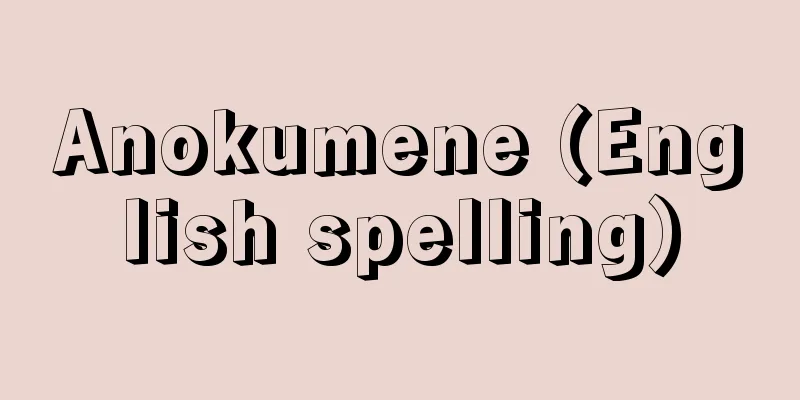Owned - Any

|
〘Conjunction〙 (The verb “ari (existence)” is combined with the atjunction form of the ancient auxiliary verb “yu” for spontaneous and possible action to form a single word.) As much as possible. All. Everything and everything. ※Jizo Jyurin-kyo Sutra, Genkei 7th Year Section (883), 1 “He will liberate all living beings from the evil deeds they inhabit, the sword warfare, disease, famine, and the troubles they face.” ※Nihon Yomihon (1887), 〈Shinbo Iwaji〉, 5 “The lion is called the king of beasts because it is the most ferocious of all animals.” [Etymology] (1) “Yu” and “rayu” used in the ancient times were no longer used in the Heian period, and only “iwayuru” and “arusai” were used in Chinese readings. (2) In some cases, a conjunction does not become a conjunction, but takes a modifier above it. For example, "All evil deeds and serious crimes in body, speech , and mind " in "Unkadanogiki Hoan Ni Nen Ten" and "While the thieves from all over Kyoto rushed in" in "Taiheiki- Roku ." sho-yuu iu [possession]sho-u [possession]Source: The Selected Edition of the Japanese Language Dictionary About the Selected Edition of the Japanese Language Dictionary Information |
|
〘連体〙 (動詞「あり(有)」に、上代の自発・可能の助動詞「ゆ」の連体形が付き一語化したもの) ありうる限りの。すべての。ありとあらゆる。※地蔵十輪経元慶七年点(883)一「衆生の宿の悪業と刀兵と病と饑饉とを、所在(アラユル)悩害に随ひて、皆能く解脱せしむ」※日本読本(1887)〈新保磐次〉五「獅子の猛きこと有らゆる動物の第一なるを以て百獣の王と称せらる」[語誌](1)上代に用いられた「ゆ」「らゆ」は、平安時代になると用いられなくなり、「いはゆる」「あらゆる」などだけが漢文訓読文に用いられた。 (2)連体詞になりきらないで、上に連用修飾語をとる用法も間々見られる。「吽迦陀野儀軌保安二年点」の「身口意業に所有(アラユル)一切の悪業重罪」、「太平記‐六」の「洛中にあらゆる所の手者(てのもの)共、馳加りける間」など。 しょ‐ゆう ‥イウ【所有】しょ‐う【所有】出典 精選版 日本国語大辞典精選版 日本国語大辞典について 情報 |
<<: Emasculation - emasculation
>>: Right of first night - Shoyaken
Recommend
Revenue tax - shuutokuzei
It is a general term for taxes on goods that indi...
Virgil (English spelling) Pūblius Vergilius Marō
A representative poet of the Roman classical peri...
Sanno ruins - Sanno ruins
This is an archaeological site from the Jomon to Y...
Kana Kagiya - Keyakizaka
The creator of Iyo Kasuri. Born to a farmer in Im...
business management
…In 1881, the Wharton School of the University of...
Peony flower - Peony flower
A perennial plant of the Umbelliferae family (APG...
Common-law marriage
A de facto marriage is a relationship in which tw...
Colonnade - colonnade (English spelling)
A colonnade is a space between columns connected ...
Inari Kumon
…Therefore, in the Kamakura period, the disputes ...
karēz (English spelling)
…A culvert-type water facility found mainly in ar...
Ultra Ismo - Ultra Ismo
...It has only a short history of a century and a...
Ringo (apple) - Malus pumila; apple; crab
A deciduous tall tree of the Rosaceae family. It i...
Hanshichi Torimonochō - Hanshichi Torimonochō
Kidō Okamoto's reading novels. Starting with ...
Thin
A general term for thin-woven silk fabrics, refer...
Kindi (English spelling) al-Kindi
Arab philosopher. Born in Basra (or Kufa). Known ...









